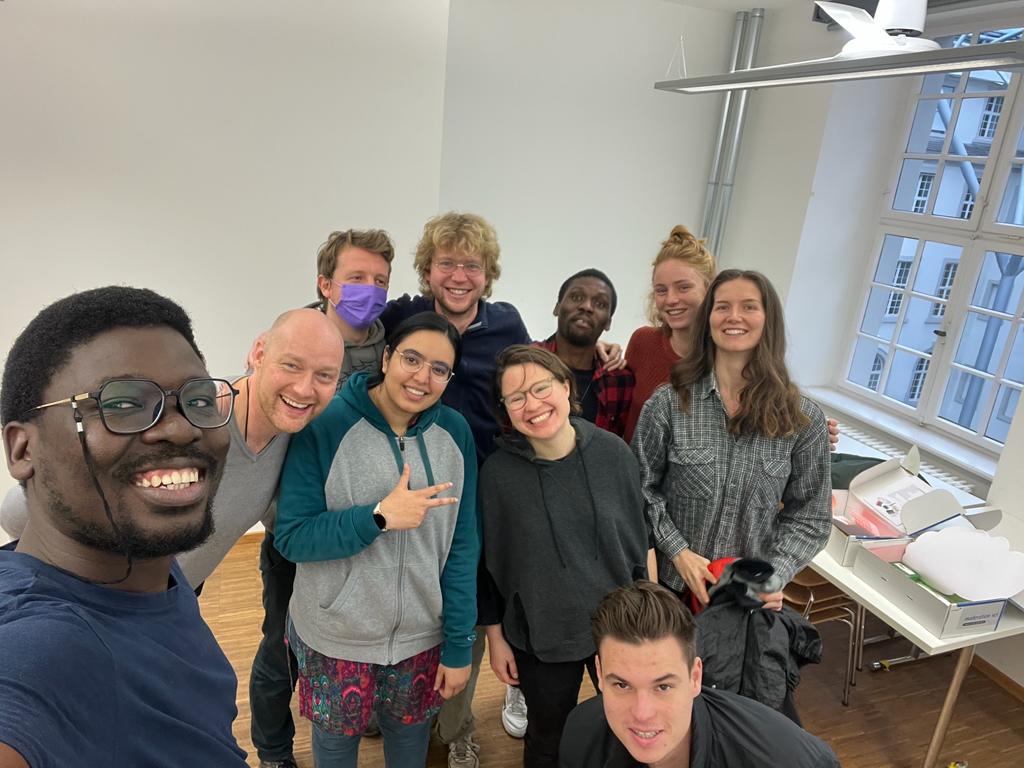MEG Elective on Decolonising Climate Change
Text by Zarmina Khan
Climate change is one of the most pressing issues of our time, and it is essential that we approach it with a decolonizing lens. The legacy of colonialism has played a significant role in creating disparities in how the impacts of climate change are felt, and it is crucial that we actively work to address these inequalities in our efforts to mitigate and adapt to the effects of climate change.
To this end, the 17th generation of MEG was provided an opportunity to opt for an elective module titled Decolonising Climate Change taught by Robert John to gain deeper insights into the interconnectedness between colonialism and climate change. The module clearly outlined how climate change partly emerged from and was reinforced by historically inequitable power relations established and upheld by colonial regimes globally. This ultimately was correlated with understanding the importance of decolonizing and challenging hegemonic narratives. Towards the end of the module, realistic and desirable futures were discussed in the light of climate justice and reparations, as motivations for change.
To fulfil the learning goals set out by the module, students engaged with literature of diverse non-western authors which was a unique aspect of this module. The chosen readings integrated international, interdisciplinary, and intersectional perspectives to understand the multiple interlocking systems of colonial oppression and socio-ecological inequities.
Moreover, a speaker series offered participants the perspectives of decolonial activists, advocates and scholars working on understanding and revealing the complex histories and ongoing entanglements of colonialism and climate change, bringing to life different theories and practices of resistance and change.
In addition, the course content was further enriched by brief discussions held at the start of each class regarding the proceedings of the Sharm El-Sheikh Climate Change Conference (COP 27) which coincided with the dates of the module and the voluntary viewing of the documentary titled “Concerning Violence – Nine Scenes from the Anti-Imperialistic Self-Defence.”
This module was quite unique in the sense that in addition to the course content, ample space and time was allocated for in-class discussions to engage with other’s thoughts, feelings, and struggles, reflecting on personal (learning) experiences, practices, and professions. It was quite interesting to observe that all participants were quite open and non-judgmental, committed to the importance of listening and acknowledging non-Western thoughts and emotions and moving beyond their (un)conscious experience of privilege.
The course outline clearly defined the roles of the lecturer (Robert John)- facilitating a collaborative and engaging learning process; and the participants- creating a non- judgmental and constructive learning environment. Doing so helped the students move away from a traditional classroom environment with predefined roles based on the degree of power exercised by each party to creating an anxiety-free learning environment where everyone could raise their voices without any fear of being judged or penalised.

MEG students of the DCC module and lecturer Robert John
Moreover, to provide a non-judgmental learning atmosphere, a Community Agreement was drafted at the very beginning of the module. The agreement held each participant accountable for certain mutually agreed upon principles like being open to (self) criticism, not shying away from discussing difficult topics and embracing silence etc. The agreement was seminal in creating an inclusive classroom where diversity including age, country of origin, culture, disability, economic class, ethnicity, gender identity, immigration status, linguistic, political affiliation, race, religion, sexual orientation was acknowledged and respected.
The best aspect of the module was the individual written assignment in the form of a reflective diary (learning journal) where each participant was encouraged to reflect on his/her individual learning experience. Students collected artefacts and inlays from class readings and discussions and reflected on their learning process, key findings, and personal insights. This process was aided by in-class group discussions and reflection processes.
Once the module ended, it was mutually decided to share our learnings with the other MEG generations as well and so a WhatsApp group along with a mailing list was created to share informative content. Also, members of the group decided to meet periodically to discuss ways to keep the momentum going.
Being a part of the Decolonizing Climate Change was quite a worthwhile experience and so I encourage all students who are interested in understanding the roots of the climate crisis to sign up for this elective module. Together, we can create a more equitable and sustainable world for all!


